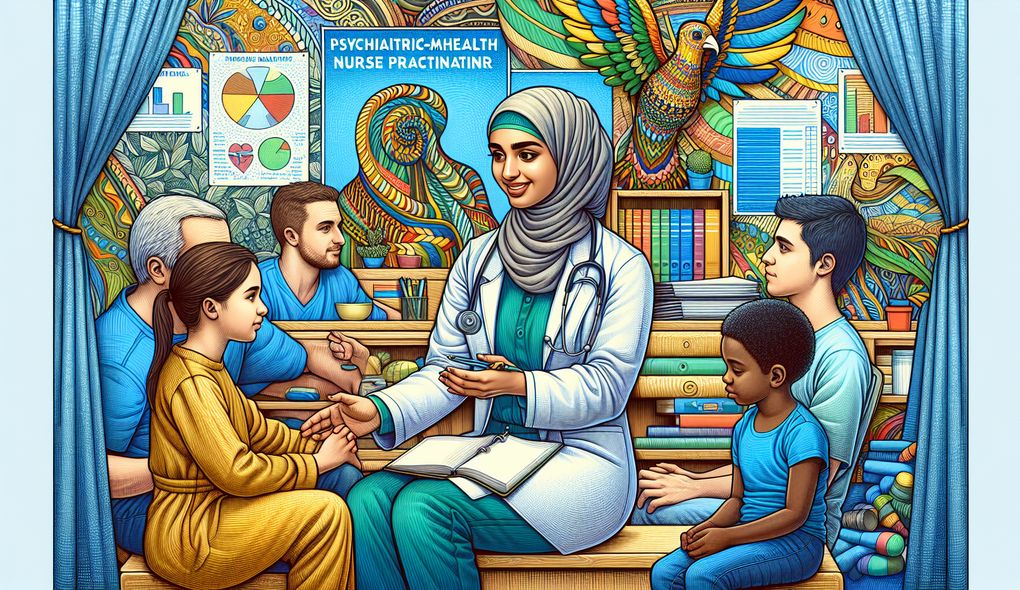How do you stay aware of legal and ethical standards in psychiatric care?
JUNIOR LEVEL

Sample answer to the question:
To stay aware of legal and ethical standards in psychiatric care, I regularly attend workshops and conferences related to psychiatry. I also make sure to stay updated on the latest research and guidelines from reputable sources. Additionally, I am an active member of professional organizations that provide resources and guidance on ethical practices in psychiatric care.
Here is a more solid answer:
As a psychiatric care provider, I prioritize staying aware of legal and ethical standards in my practice. To achieve this, I engage in various activities. Firstly, I regularly participate in continuing education courses and workshops focused on psychiatry ethics. These sessions enhance my knowledge of ethical principles and provide me with practical strategies to navigate complex ethical dilemmas. Additionally, I actively follow relevant research publications and stay updated on any changes in legal regulations pertaining to psychiatric care. For instance, I regularly review guidelines from organizations like the American Psychiatric Association and the American Nurses Association to ensure that I am practicing within the bounds of ethical and legal frameworks. Furthermore, I actively engage in discussions with my colleagues and seek their input on ethical concerns that arise in my practice. By collaborating with others, I gain valuable insights and learn from their experiences, which helps me continually improve my ethical decision-making skills. Overall, my commitment to ethical practice and continuous learning allows me to provide the highest standard of care to my patients.
Why is this a more solid answer?
The solid answer provides more specific details and examples to demonstrate a commitment to ethical practice and lifelong learning. It mentions participating in continuing education courses and workshops focused on psychiatry ethics, staying updated on research and legal regulations, and engaging in discussions with colleagues. However, it could still be improved by including specific examples of ethical dilemmas faced and how the candidate resolved them.
An example of a exceptional answer:
Maintaining awareness of legal and ethical standards in psychiatric care is a top priority for me. I take a proactive approach by actively seeking out opportunities to enhance my understanding of ethics in mental health. For example, I am currently pursuing a certification in Psychiatric-Mental Health Nursing, which includes a comprehensive module on ethical considerations. Additionally, I subscribe to professional journals and publications that specialize in psychiatric ethics, such as the Journal of Psychiatric Nursing. These resources keep me informed about current ethical debates and best practices. Moreover, I have developed a network of trusted mentors and colleagues to discuss complex ethical scenarios and seek guidance together. By engaging in these conversations, I have gained valuable insights into different perspectives and learned from the experiences of others. Furthermore, I regularly review case studies and participate in ethical debates during team meetings to sharpen my critical thinking skills in navigating ethical dilemmas. By consistently staying updated and actively engaging with colleagues, I ensure that my practice aligns with legal and ethical standards and that I provide the highest quality of care to my patients.
Why is this an exceptional answer?
The exceptional answer goes above and beyond by including specific examples of professional development activities such as pursuing a certification, subscribing to specialized journals, and participating in ethical debates. It also highlights the candidate's proactive approach in seeking guidance from mentors and colleagues and actively engaging in critical thinking exercises to navigate ethical dilemmas. This answer demonstrates a strong commitment to ethical practice and lifelong learning.
How to prepare for this question:
- Stay updated on the latest research and guidelines in psychiatric ethics.
- Participate in continuing education courses and workshops focused on ethical considerations in psychiatry.
- Engage in discussions and seek guidance from mentors and colleagues to gain different perspectives on ethical dilemmas.
- Subscribe to professional journals and publications specializing in psychiatric ethics to stay informed about current debates and best practices.
What are interviewers evaluating with this question?
- Commitment to ethical practice and maintaining patient confidentiality
- Aptitude for lifelong learning and professional development

